BMW X3 vs Toyota Highlander - Differences and prices compared
Who comes out on top?
Overall, the Toyota Highlander shows itself to be has a very small edge and secures the title of DriveDuel Champion.
It convinces with the more balanced overall package and proves to be the more versatile choice for everyday use.
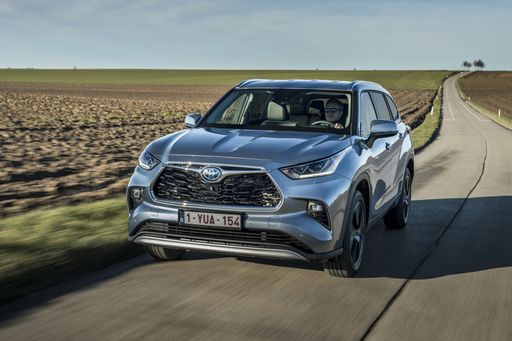 @ Toyota Motor Corporation
@ Toyota Motor Corporation
Toyota Highlander
BMW X3
The BMW X3 mixes Bavarian poise with everyday practicality, delivering a composed ride and a cabin that feels both premium and lived-in. It’s the sort of SUV that lets you enjoy sporty handling without sacrificing family-friendly space, so you get fun and sense in one neat package.
details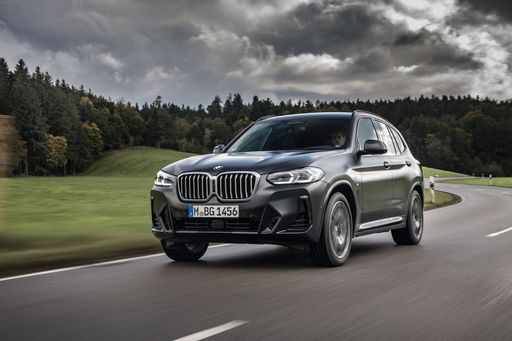 @ BMW Group Press
@ BMW Group Press
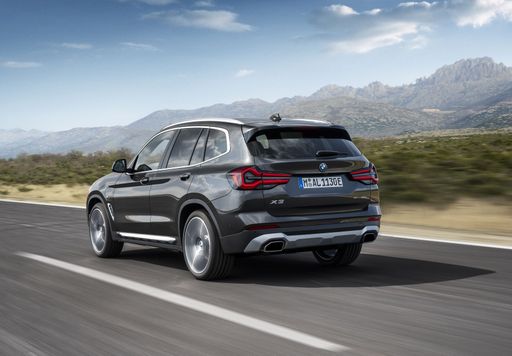 @ BMW Group Press
@ BMW Group Press
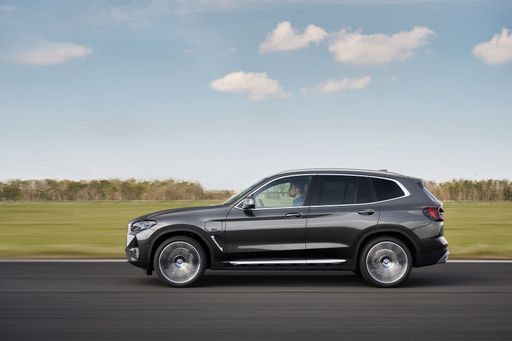 @ BMW Group Press
@ BMW Group Press
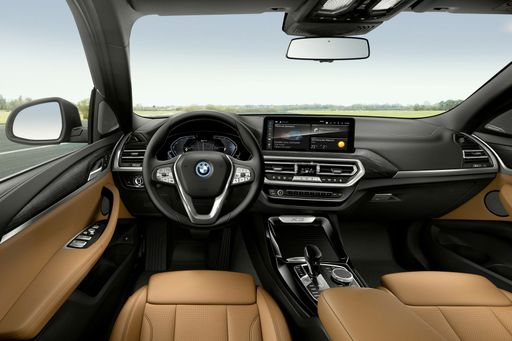 @ BMW Group Press
@ BMW Group Press
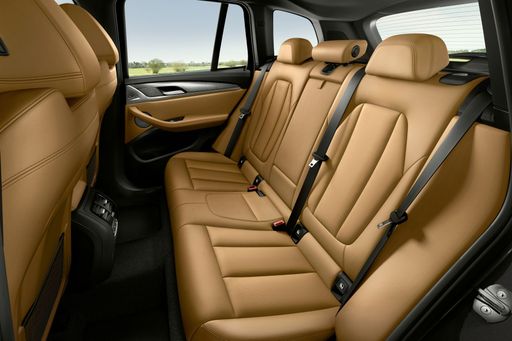 @ BMW Group Press
@ BMW Group Press
Toyota Highlander
The Toyota Highlander is a roomy, no-nonsense family SUV that blends everyday practicality with Toyota’s trademark reliability and a comfortable, quiet cabin. It won’t thrill the sports-car crowd, but its composed ride, user-friendly interior and sensible features make it a savvy choice for buyers who want a car that simply does the job well.
details @ Toyota Motor Corporation
@ Toyota Motor Corporation
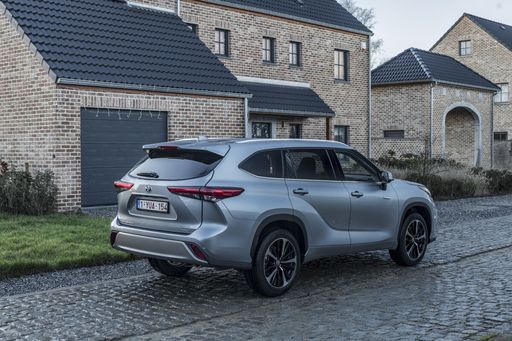 @ Toyota Motor Corporation
@ Toyota Motor Corporation
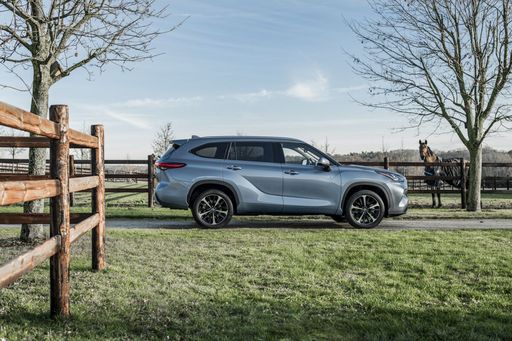 @ Toyota Motor Corporation
@ Toyota Motor Corporation
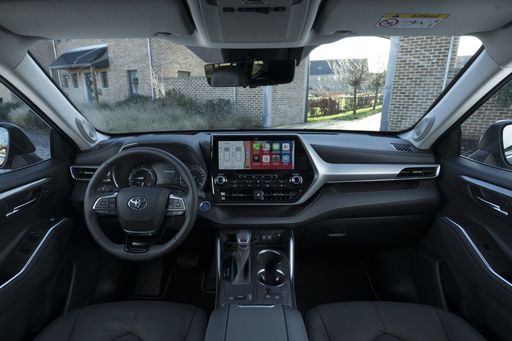 @ Toyota Motor Corporation
@ Toyota Motor Corporation
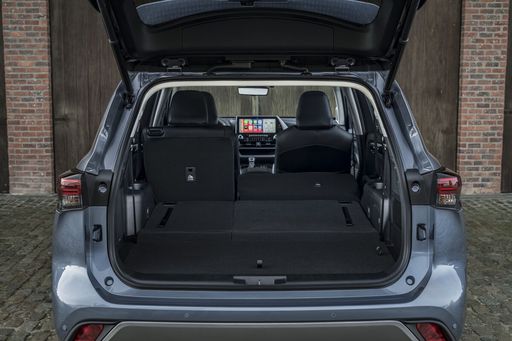 @ Toyota Motor Corporation
@ Toyota Motor Corporation
 @ BMW Group Press
@ BMW Group Press
|
 @ Toyota Motor Corporation
@ Toyota Motor Corporation
|
|
|
|
Costs and Consumption |
|
|---|---|
|
Price
51300 - 72400 £
|
Price
-
|
|
Consumption L/100km
2.8 - 7.7 L
|
Consumption L/100km
-
|
|
Consumption kWh/100km
-
|
Consumption kWh/100km
-
|
|
Electric Range
88 km
|
Electric Range
-
|
|
Battery Capacity
19.70 kWh
|
Battery Capacity
-
|
|
co2
64 - 175 g/km
|
co2
-
|
|
Fuel tank capacity
50 - 65 L
|
Fuel tank capacity
-
|
Dimensions and Body |
|
|---|---|
|
Body Type
SUV
|
Body Type
-
|
|
Seats
5
|
Seats
-
|
|
Doors
5
|
Doors
-
|
|
Curb weight
1930 - 2140 kg
|
Curb weight
-
|
|
Trunk capacity
460 - 570 L
|
Trunk capacity
-
|
|
Length
4755 mm
|
Length
-
|
|
Width
1920 mm
|
Width
-
|
|
Height
1660 mm
|
Height
-
|
|
Max trunk capacity
1600 - 1700 L
|
Max trunk capacity
-
|
|
Payload
570 kg
|
Payload
-
|
Engine and Performance |
|
|---|---|
|
Engine Type
Petrol MHEV, Diesel MHEV, Plugin Hybrid
|
Engine Type
-
|
|
Transmission
Automatic
|
Transmission
-
|
|
Transmission Detail
Automatic Gearbox
|
Transmission Detail
-
|
|
Drive Type
All-Wheel Drive
|
Drive Type
-
|
|
Power HP
197 - 398 HP
|
Power HP
-
|
|
Acceleration 0-100km/h
4.6 - 7.8 s
|
Acceleration 0-100km/h
-
|
|
Max Speed
215 - 250 km/h
|
Max Speed
-
|
|
Torque
330 - 670 Nm
|
Torque
-
|
|
Number of Cylinders
4 - 6
|
Number of Cylinders
-
|
|
Power kW
145 - 293 kW
|
Power kW
-
|
|
Engine capacity
1995 - 2998 cm3
|
Engine capacity
-
|
General |
|
|---|---|
|
Model Year
2024 - 2025
|
Model Year
-
|
|
CO2 Efficiency Class
F, E, B
|
CO2 Efficiency Class
-
|
|
Brand
BMW
|
Brand
-
|
What drive types are available for the BMW X3?
The BMW X3 is offered with All-Wheel Drive.
The prices and data displayed are estimates based on German list prices and may vary by country. This information is not legally binding.
